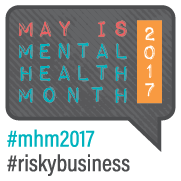Depression is the most common mental health problem in the United States, affecting more than 17 million people each year. You may be aware of how depression affects adults and may even know someone that has suffered from depression, but did you know that as many as 1 in 33 children may have depression?
Depression is more than having the blues or feeling down or disappointed every now and then. A depressive state can last anywhere from two week to months and severely impacts a child’s functioning at home and at school. Depression in children may appear differently than depression in adults.
A few red flags may be your child is:
- Sad or in an irritable mood for most of the day. Your child may say they feel sad or angry or may look more tearful or cranky.
- Not enjoying things that used to make your child happy.
- Losing/gaining a significant amount of weight.
- Sleeping too little at night or too much during the day.
- No longer wanting to be with family or friends.
- A lack of energy or feeling unable to do simple tasks.
- Feelings of worthlessness or guilt. Low self-esteem.
- Trouble with focusing or making choices. School grades may drop.
- Not caring about what happens in the future.
- Aches and pains when nothing is really wrong.
- Frequent thoughts of death or suicide.Early detection and diagnosis are key in treating kids with depression.
If you notice any of the above signs of depression, a good place to turn to is your pediatrician. You may be referred to a professional counselor or a psychiatrist for a complete evaluation. From there, you can develop a treatment plan for your child.

